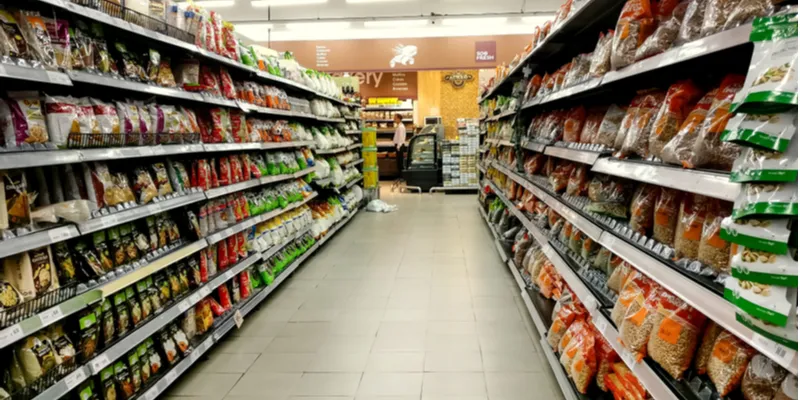Navalprabha Foods wants to become the dark kitchen for D2C brands
This Jalgaon-based white label manufacturer, which supplies premixes for dhokla, gulab jamun, idli, dosa, vada, ice cream, and cakes to FMCG companies, is now focused on D2C brands.
It was the mid-1980s. Harak Soni’s aunt, Meena Soni, who had settled in the US, was missing Indian food, especially khaman dhokla (a light and spongy snack made from flour). So, when she came to India on her annual visit, she told her family to come up with a solution for her craving.
Harak’s father, Jayesh Soni, and his grandfather, Narayanji Soni, prepared a homemade premix for khaman dhokla, which Meena could take back to the States. Soon enough, the premix not just solved her dilemma but it also became widely popular in the States, especially among the Indian diaspora, says Harak, the director of Navalprabha Foods.
The product’s instant popularity led the Soni family to start supplying the premix to the US through Meena and some domestic retailers. Till about 1988, the family was operating on a small scale, but when they were convinced that they had found a good business opportunity, they couldn’t let go of it.
The same year, the Soni family set up a 1000-sq-feet manufacturing unit and launched in Jalgaon, Maharashtra, with a capital investment of Rs 7,000. One of its first customers was a Nashik-based FMCG company, which requested Harak’s father to manufacture a gulab jamun premix.
Three decades later, Navalprabha Foods is today a white label manufacturer that supplies to companies such as Nilon’s, an FMCG company, and Rakesh Masala, a spice manufacturer. Its portfolio includes premixes for dhokla, gulab jamun, idli, dosa, vada, ice cream, and cakes and flavoured cashews and millets. Going forward, it wants to become a contract manufacturer for direct-to-consumer (D2C) brands.
Product innovation
Harak, a third-generation entrepreneur, has been observing the trends in the market and driving product innovation at Navalprabha Foods, in response to these trends. He leads the company along with his sister Chandni Soni and brother Darshan Soni.
Two years ago, Harak noticed that people were getting more conscious of their health. He realised that his company had to add healthier options to its portfolio. This led to the company rolling out flavoured cashews, almonds, and millets. “We aren’t a full-fledged health company but one which has healthier products as well in its portfolio,” he says.
Another trend was the emergence of plant-based meat tikkis and patties. Many entrepreneurs in the D2C space reached out to Harak with requests to manufacture plant-based meat tikkis and patties.
According to a report by Research and Markets, India’s meat substitutes market is expected to reach $47.57 million by 2026, with an average annual growth rate of 7.5 percent from 2021 to 2026. It is this “massive opportunity” that Harak wants to tap into.
The D2C idea
Observing the interest expressed by D2C players, Harak started taking the idea of D2C seriously.
A D2C brand sells products directly to consumers online, without involving retail stores or a distribution network. The Indian D2C market is pegged at $1.9 billion and is slated to reach $22 billion by 2025, according to a report by Technopark.
The company has invested Rs 4.3 crore in a facility in Jalgaon exclusively for manufacturing products for D2C brands. It has begun manufacturing, and the food startups that are on board are Snackible, Oui, and Govaa Bazaar.
“In the 1990s, our thought was to produce X tonnes of products every month but today we aim to become the dark kitchen for D2C brands and work with as many entrepreneurs as possible without worrying about quantity. New-age entrepreneurs and founders running food startups are extremely innovative and passionate about what they do,” explains Harak.

Lessons learnt from a miss
Traditionally, Navalprabha Foods has operated as a B2B (business-to-business) company. However, in 2006, it ventured into the B2C space but soon realised that it was not cut out for it.
The company set up a manufacturing facility and started making kulfis. The company rolled out 23 flavours of kulfis and even ice cream, but the products failed to make a mark in the retail market.
“Competition from ice cream giants ate us and we felt our unit economics had gone wrong,” says Harak. He says maintaining a cold supply chain was extremely difficult and the company was paying four times more than what it cost for a single batch of kulfis and ice creams. Navalprabha Foods was manufacturing one lakh units a year but was able to sell only 65,000 to 85,000 units.
In 2013, the company made the difficult decision to shut down the B2B operation. It sold its equipment and unit to an Ahmednagar-based FMCG company.
The biggest lesson the company learnt from this experience was that it had to focus on its forte—B2B operations.
Looking ahead
Navalprabha Foods operates at a margin of 6-7 percent with small entrepreneurs and 10-11 percent with bigger brands.
In terms of revenue, Navalprabha Foods is yet to hit the big league. The company clocked a turnover of Rs 1 crore in FY20 and Rs 2 crore in FY21.
“We are still a very small company but we have been able to support entrepreneurs and big brands, so we are satisfied at the end of the day,” says Harak.
Going forward, the company plans to produce healthier products like premixes for ragi idli and ragi gulab jamun, millet-based products, and plant-based meat. “People have realised the importance of health post COVID-19; so producing health products is definitely on the cards,” signs off Harak.
Edited by Swetha Kannan









